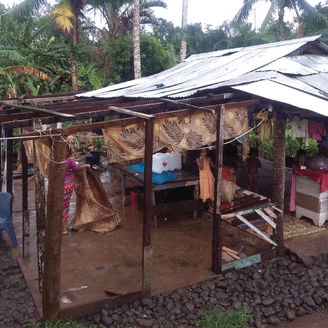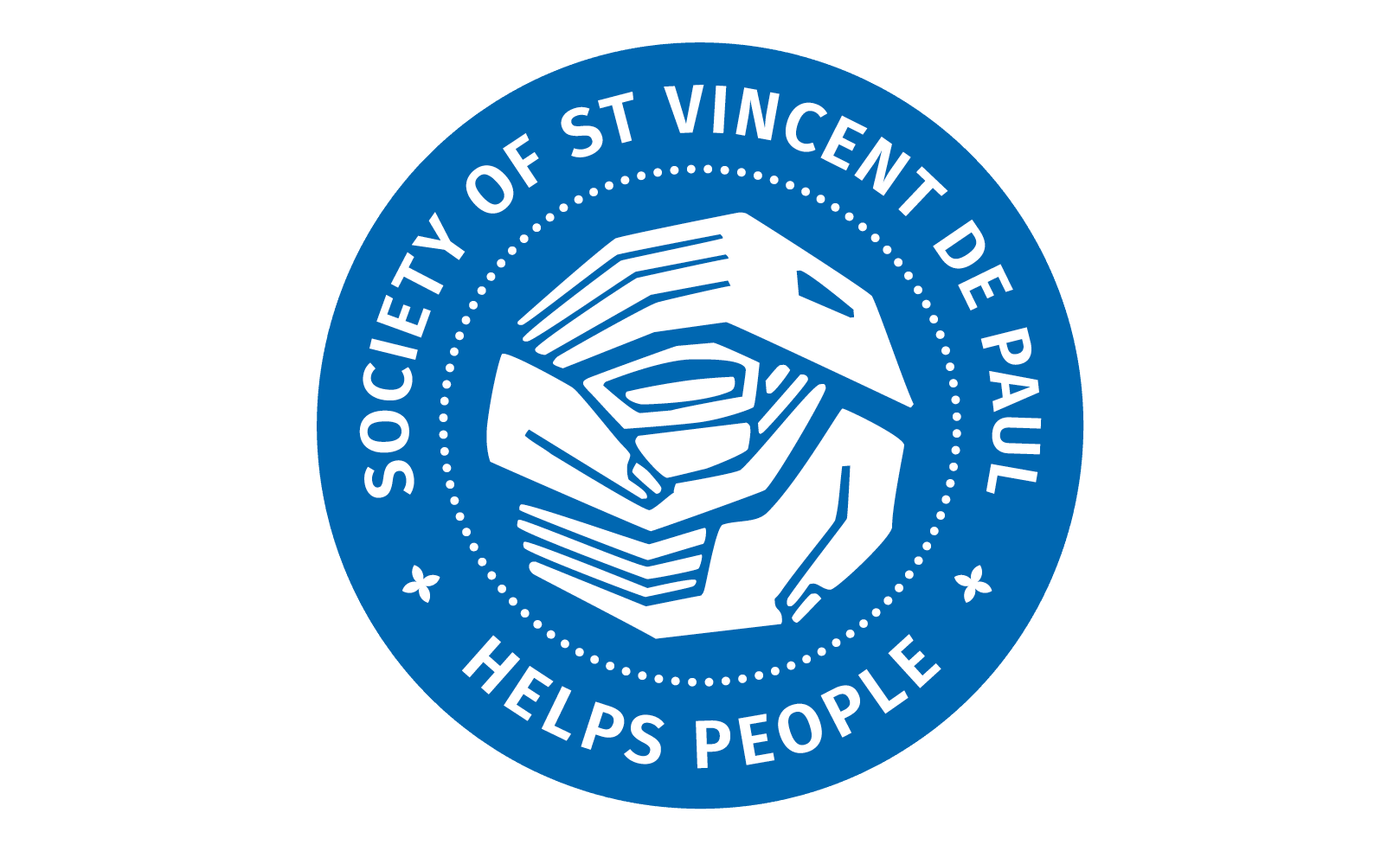About Us
Our Vision
To live the gospel message by serving Christ in the poor with love, respect, justice, hope, and joy, and by working to shape
a more just and compassionate society.
Our Mission
Vincentians work to provide person to person, practical and effective help to those in need; sharing their burdens and joys; sowing seeds of hope, and promoting human dignity, justice, and self sufficiency.
Our Core Values
Generosity
Giving of one’s self and one’s time.
Integrity
Promoting, maintaining and adhering to our Vision, Mission and Values.
Compassion
Welcoming and serving all in need with understanding and without judgement.
Empathy
Establishing relationships with those in need based on respect, trust, friendship, and perception arising from actively listening to them.
Responsiveness
Identifying and responding to unmet needs of the poor, the lonely, the marginalised, and the dispossessed.
Advocacy
Helping those in need to navigate bureaucracy to secure their rightful entitlements to welfare and to actively work in conjunction with other like-minded organisations to transform the causes of poverty, and challenge injustice.
Commitment
Fidelity and passion in service of our Vision, Mission and Values.
Respect
Serving all in need regardless of creed, ethnic or social background, health, gender or political persuasion.
Courage
To ask for forgiveness and to forgive, to be merciful, and to pray courageously for the grace to serve, to love our neighbour and to be close to those who are lonely and in difficulty.
Social Justice
The Society of St Vincent de Paul in New Zealand claims justice for the poor and works to influence social and economic systems to bring about positive change. We use the voice and good name of the Society to speak out on issues of justice and social conditions and address these concerns to both political and social institutions to effect change. We work with national politicians, Ministry of Social Development and national and Catholic media to identify issues affecting the poor.
In 2006 the National Council resolved to work alongside Caritas to combine practical grassroots experience together with analysis and research, to respond to Social Justice issues within New Zealand.
The Society of St Vincent de Paul in collaboration with Caritas has facilitated research into issues relating to social justice advocacy, submissions to the Select Committee including joint letters and statements on power disconnections, loan sharks and poverty.
Twinning with Pacific Nations
New Zealand Conferences and Councils in Samoa, Tonga, Tokelau and Sri Lanka are all members of the Oceania region. The Twinning scheme has been in existence since 1960. It aims to develop links between New Zealand Conferences and those in developing countries.
The Society in New Zealand also sets up appeals for assistance for particular projects internationally following natural disasters.
We have a special relationship with three of our neighbours in the Pacific — Western Samoa, Tonga and Tokelau, and with Sri Lanka which New Zealand has been twinned with for many years.
In the case of Sri Lanka, Samoa and Tonga, New Zealand conferences are twinned with conferences in those countries, while the relationship with Tokelau sees students assisted towards obtaining higher education in Samoa, funded through an annual appeal in New Zealand.
Through regular visits special projects are identified and equipment and funding sourced in New Zealand.
Patron Saint - Vincent de Paul
“Love the poor. Honour them, my children, as you would honour Christ himself”
Vincent de Paul was born in the small southern French town of Pouy (later renamed Saint Vincent de Paul in his honour) on 24 April 1581 and ordained as a priest in 1600 at the age of 19. As a young man he ministered to the wealthy and powerful.
However an appointment as chaplain to a poor parish, and to prisoners, inspired him to a vocation of working with those most marginalised and powerless.
Vincent urged his followers to bring God’s justice and love to people who were unable to live a full human life:
“Deal with the most urgent needs. Organise charity so that it is more efficient…teach reading and writing, educate with the aim of giving each the means of self-support. Intervene with authorities to obtain reforms in structure… there is no charity without justice.”
Vincent de Paul died in Paris on 27 September 1660 at the age of 79. He was canonised on 16 June 1737 and, in 1883, the Church designated him as the special patron of all charitable associations.
The Society was named after Saint Vincent de Paul and follows his teachings and compassion for people in need.
Founder - Frederic Ozanam
"The question which is agitating the world today is a social one. It is a struggle between those who have nothing and those who have too much. It is a violent clash of opulence and poverty which is shaking the ground under our feet. Our duty as Christians is to throw ourselves between these two camps in order to accomplish by love what justice alone cannot do".
Those words, spoken in 1834 by the Founder of the Society of Saint Vincent de Paul, Frederic Ozanam, remain relevant in today’s world.
Frederic was 20 years old when he began the Society with a number of friends in Paris on April 23, 1833. He made that defining statement a year later. It encompasses the spiritual ethos of the Society and its focus on working for social justice.
The name of Saint Vincent de Paul was chosen for the new Society as its patron saint. From the outset the Society favoured a practical, direct approach to dealing with poverty. Frederic Ozanam laid down the instruction that SVDP members must give of themselves, through their time, talents and resources to help the poor:
“The poor person is a unique person of God's fashioning with an inalienable right to respect,” he said and instructed SVDP volunteers: “You must not be content with tiding the poor over the poverty crisis. You must study their condition and the injustices which brought about such poverty, with the aim of a long-term improvement.”
Spirituality
A fundamental principle that was agreed early in the life of the Society, at the time of the founding of a conference in Lyons, France, was that the primary goal of the Society was not charity, but the spiritual growth of the members of the Society.
While this may appear to be putting into second place the serving our neighbours in need, the reasoning is that unless the spirituality of the Society's members is cared for there will no ability for them to be self-sacrificing in their love of their neighbour.
When that happens, charity, or love, becomes purely the giving of welfare.
For that reason the Society nurtures the spiritual life of its members, with the appointment of spiritual advisors at all levels, prayers and reflections at meetings and spiritual exercises at festival meetings.
The Society is also involved, in partnership with other agencies, in attempting to right the injustices that exist in our communities, injustices that cause need and suffering among our neighbours.
Reading list for a spiritual life in the 21st Century
Ruth Burrows OCD - A Carmelite on mystical prayer most famous for the book Guidelines on Mystic Prayer reprinted in 2007 by Burns and Oats.
Thomas Merton - A Trappist or Cistercian spirituality (available also at Southern Star Abbey in Kopua Southern Hawkes Bay). His most famous book is Seven Story Mountain pub 1948; still available from Mariner Books.
Henri Nouwen - A Benedictine most famous for The Wounded Healer still available from random House 1979 pub.
Ronald Rolheiser
NB: The above book titles can be bought here
---
Websites for ongoing reference and inspiration:
Richard Rohr a Franciscan spirituality author at www.cac.org and for men in particular at www.malespirituality.org
Joan Chittister a Benedictine spiritual author at www.benetvision.org
Danial O’Leary, a UK Diocesan Priest and spiritual author at www.djoleary.com
Jesuit Spirituality Website on www.ignationspirituality.com






